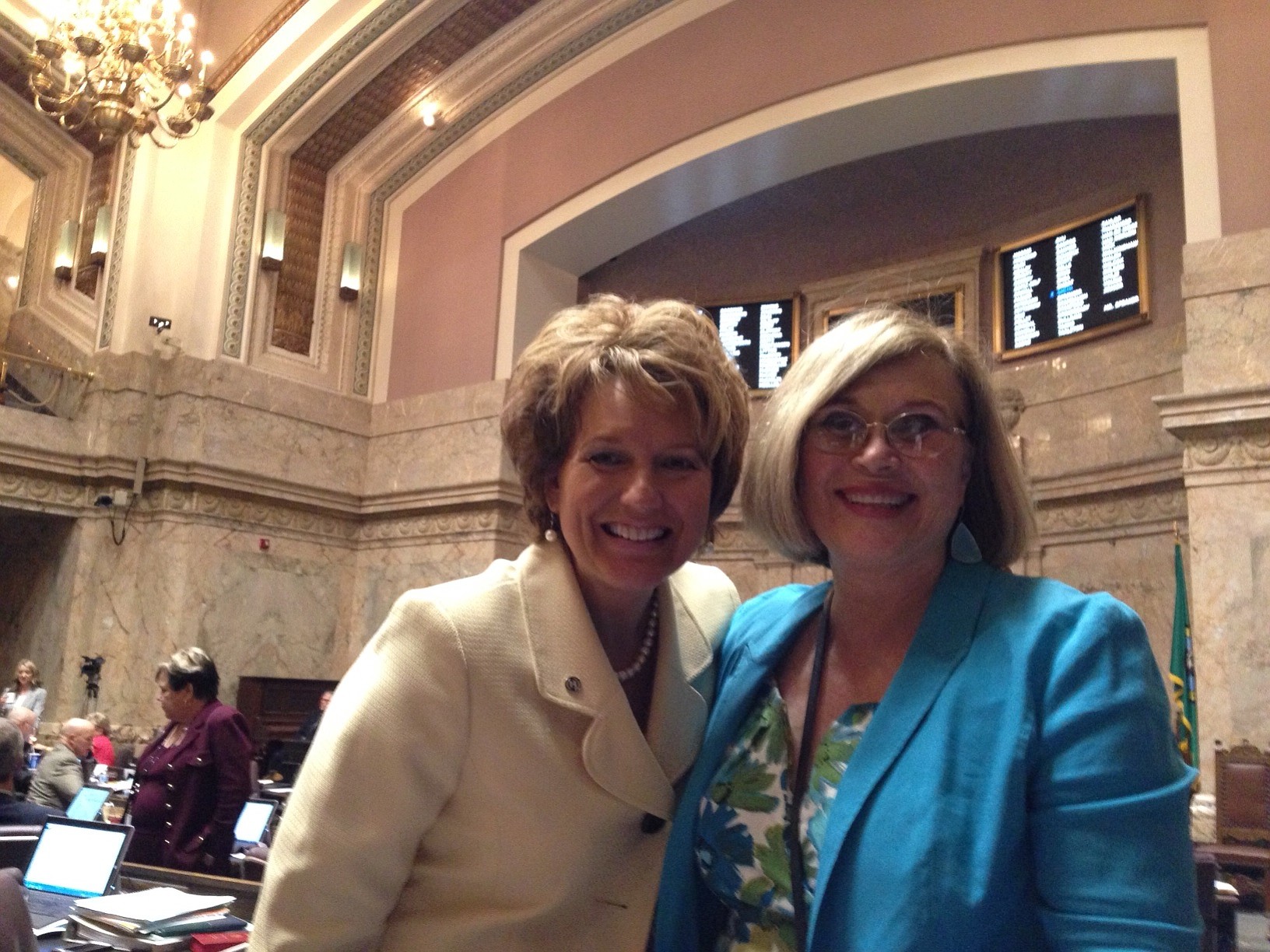Two years after Washington state lawmakers rejected a $3 billion bridge over the Columbia River, they carved out $100,000 to build a political bridge.
On Thursday, the state House passed an amendment paving the way for a bistate bridge coalition.
The measure is perhaps more noteworthy in what it symbolizes — Southwest Washington lawmakers finding common ground on one of the region’s most divisive issues — than what it actually accomplishes.
It allocates $100,000 to hire neutral facilitators to help formalize work addressing the Interstate 5 Bridge with a group of both Oregon and Washington lawmakers.
Earlier this week, Rep. Liz Pike, R-Camas, introduced a similar measure that failed.
“We were under the gun this week,” Pike said. “If we were going to get a compromise and an amendment to have a little seed money for this corridor, we had to get it done this week.”
Members of the Southwest Washington delegation met behind closed doors.
Reps. Pike and Sharon Wylie, D-Vancouver, went to a coffee shop to hammer out more details.
The lawmakers, Wylie said, “had to work through some trust issues.”
On Monday, Rep. Jim Moeller, D-Vancouver, said any discussion surrounding a bridge in Southwest Washington quickly becomes toxic and perhaps lawmakers should refrain from speaking about bridges for a couple of years.
On Thursday, Moeller said, “I think this has to be the first time there has been agreement among the legislators since the beginning of the project.”
The measure identifies the William D. Ruckelshaus Center and the Oregon Consensus Center as being possible consultants to help create the work group.
The group would address project design options and consider capacity, safety, sufficiency, public support and cost effectiveness. The group would be required to file a report by Dec. 1, 2016, and each year after until the project is complete.
Pike said it was a “herculean bipartisan effort.” While on the House floor, she told Wylie, “Sharon, we need to look back on this day, April 9, 2015. This will be a historic day five years from now when we are standing on a new bridge between Oregon and Washington.”
Oregon House Speaker Tina Kotek, D-Portland and a proponent of the Columbia River Crossing, said Thursday that she has not chatted with Southwest Washington lawmakers about their proposal. She added that there is not a similar effort underway in Oregon. Kotek would be a key player in ensuring approval of the project in the Oregon Legislature.
Pike said she knows Washington lawmakers will have to rebuild trust with their Oregon counterparts.
“I think Oregon is expecting us to make the first move, because in full disclosure, we’re the ones that killed the last deal. So I don’t blame them,” Pike said.
The amendment, which was passed as part of the House transportation appropriation budget, House Bill 1299, would still require passage in the Senate and the governor’s signature.




